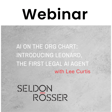
Growth in New Markets and Regions - Abdul Malik Anwar Deen
In this episode, we sit down with Abdul Malik Anwar Deen, Managing Director of CT Group Singapore, to explore what it truly means to lead business development from the front.
Malik has been instrumental in launching and growing CT Group’s presence across Southeast Asia, bringing together strategic foresight, entrepreneurial drive, and deep regional expertise. His professional journey is a unique one: previously a Partner at a leading Singapore law firm (where he made history as the first non-lawyer in the country to be awarded equity partnership), Malik also held senior roles in the energy and trade sectors with both the Singapore and New Zealand governments. He currently serves on the Strategic Advisory Board of the International Fraud Group (IFG).
Across our conversation, Malik shares practical and actionable insights for professional services leaders, including:
- How to navigate market expansion and decide when to scale, hire, or pivot.
- The importance of tailoring BD strategies to different markets and industries.
- Building credibility in new markets where your brand is not yet established.
- His “go-to” strategies for client relationship building stand the test of time.
- The blind spots professional services leaders often face in BD.
- Future-facing advice on what the next generation of managing partners, MDs, and CEOs will need to do differently to succeed.
A must-listen for leaders looking to sharpen their business development edge and grow their presence in Asia and beyond.
Seldon Rosser is a global executive search firm specialising in placing senior leaders in Business Development, Marketing, and Communications across professional services.
Credits: Music by Grand_Project from Pixabay
Produced by Kwame Slusher Audio





